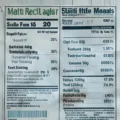What Is SIBO?
Small intestinal bacterial overgrowth (SIBO) is a condition where there is an abnormal increase of bacteria in the small intestine. The small intestine usually has lower levels of bacteria compared to the colon. When bacteria overgrow, it can lead to symptoms like bloating, gas, abdominal pain, diarrhea, and malnutrition.
What Causes SIBO?
There are several factors that can increase the risk for developing SIBO:
- Intestinal motility disorders – Conditions that affect the muscular contractions that move food through the GI tract can slow transit time and allow bacterial overgrowth.
- Structural issues – Scarring from surgery, diverticula (small pouches), intestinal obstruction can change the intestine environment and favor bacterial overgrowth.
- Medications – Antacids, opioids, and other medications can slow GI motility.
Signs and Symptoms
Common symptoms of SIBO include:
- Bloating or distension
- Excessive gas
- Abdominal pain or cramps
- Diarrhea
- Constipation
- Nutritional deficiencies
Diagnosing SIBO
SIBO can be challenging to diagnose. Your doctor may order:
- Hydrogen breath test – You ingest a sugar solution and breathe into bags to measure hydrogen gas production.
- Antibiotic trial – Improvements with a course of antibiotics suggests SIBO.
- Endoscopy with aspiration and culture – A small intestine fluid sample is taken to measure bacteria.
Treating SIBO
Common SIBO treatments include:
- Antibiotics – To kill off excess bacteria in the small intestine.
- Prokinetic medications – To improve intestinal motility.
- Diet changes – Low FODMAP, biphasic, or antimicrobial diets.
Addressing underlying causes and sticking to the treatment plan is key for resolution. Some cases can be challenging to resolve. Work closely with your practitioner for continued support.
FAQ
What are the most common symptoms of SIBO?The most common symptoms of SIBO are bloating, abdominal pain, excessive gas, diarrhea, and constipation. Malabsorption issues can also occur leading to nutritional deficiencies over time.What causes SIBO? SIBO usually occurs when there is intestinal motility dysfunction, structural issues, or impairment of the ileocecal valve. Risk factors include hypothyroidism, diabetes mellitus, and the use of certain medications like proton pump inhibitors or opioids.What tests diagnose SIBO?The primary methods for diagnosing SIBO are a hydrogen breath test measuring gas production after ingesting a sugar solution, an antibiotic trial to assess symptom improvement, or an endoscopy with aspiration and culture of small intestine fluid.What is the best treatment for SIBO?The most common SIBO treatments are a course of antibiotics like rifaximin, prokinetic medications, and dietary changes such as following a low FODMAP diet. Identifying and addressing underlying causes of SIBO is also an important part of management.Can SIBO come back after antibiotic treatment? Yes, it is possible for SIBO to recur after a course of antibiotics. To help prevent relapse, it is important to take any prokinetic medications as prescribed to improve intestinal motility, adhere to dietary recommendations, and treat any underlying conditions contributing to bacterial overgrowth. Some cases can be difficult to fully resolve.









